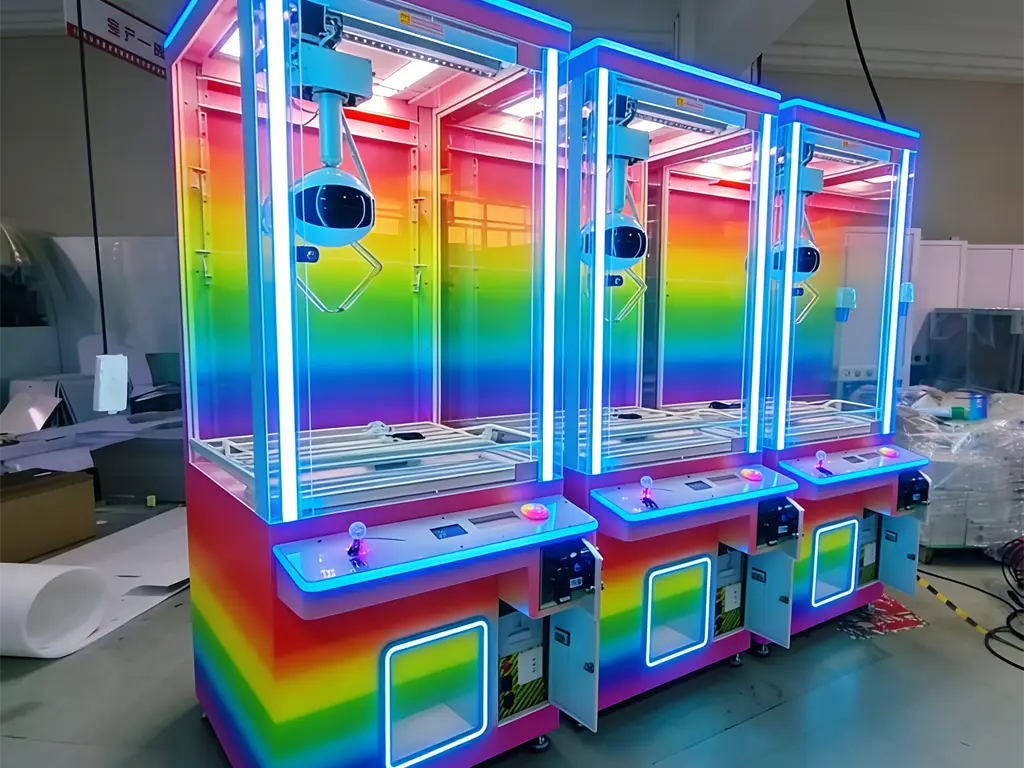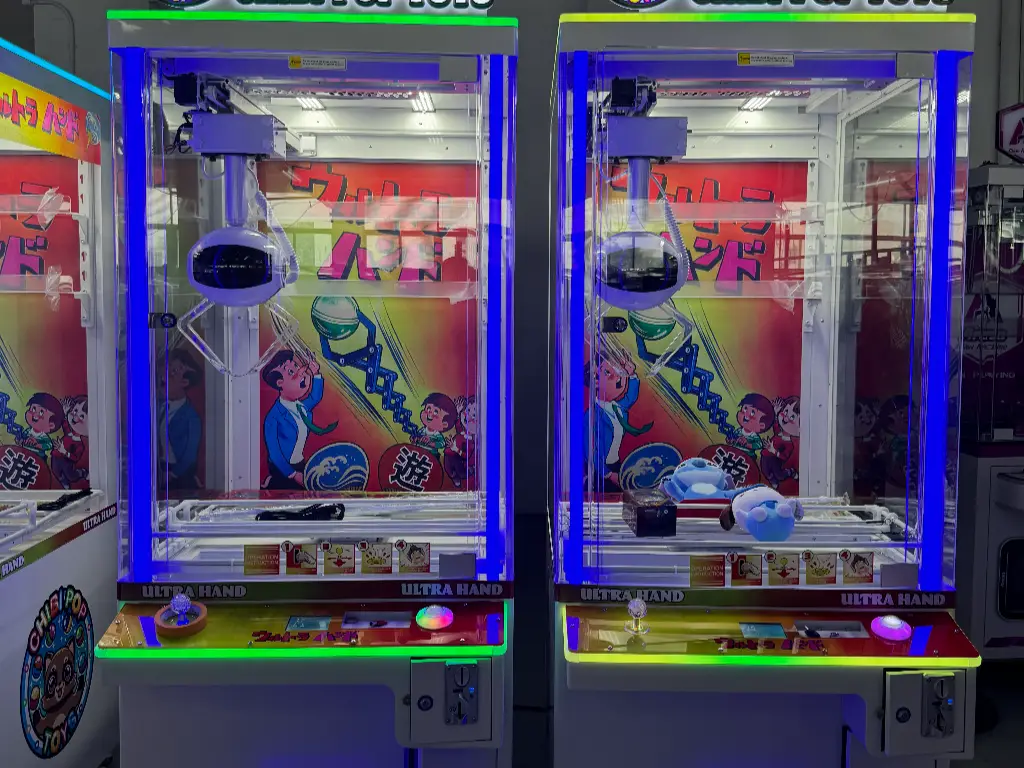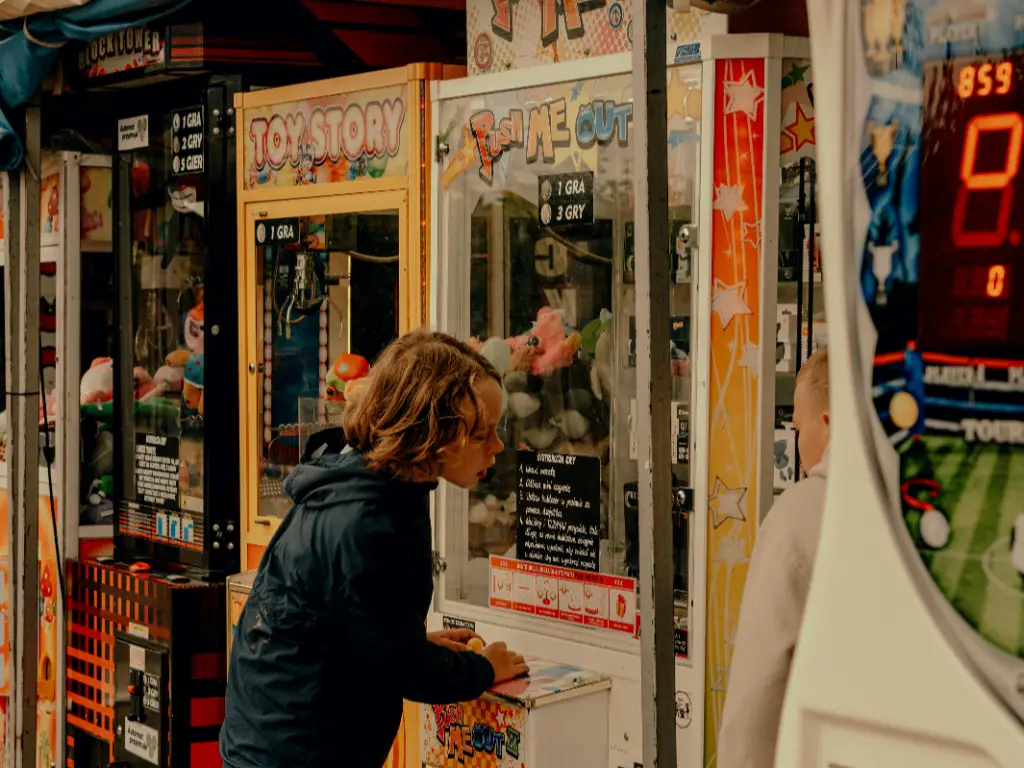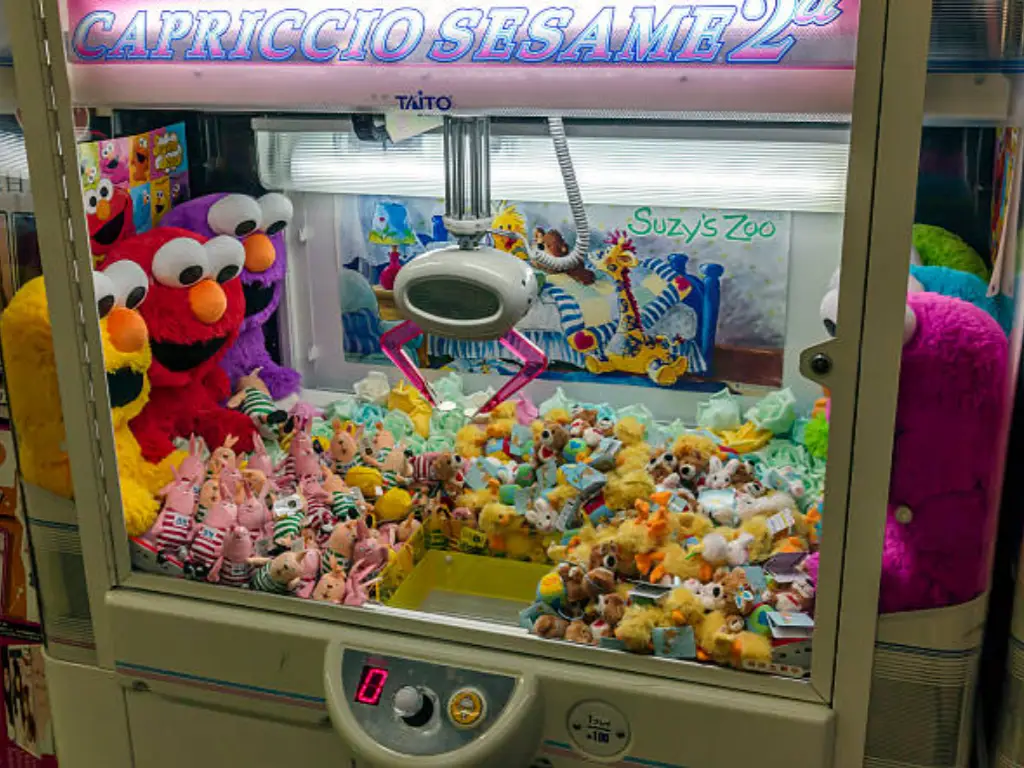Für das Fahren ist ein Führerschein erforderlich, Für den Besitz eines Unternehmens ist eine Genehmigung erforderlich – ebenso benötigen Sie eine Lizenz für den Besitz einer Klauenmaschine? Tatsächlich, Die Antwort ist nicht einfach “Ja” oder “NEIN.”
In diesem Artikel, Wir werden uns mit den Lizenz- und Zertifizierungsanforderungen für Klauenmaschinen in den USA befassen. und Europa. Ganz gleich, ob Sie Maschinen vertreiben oder diese in Ihrem Veranstaltungsort betreiben, Bedenken Sie, dass jede Region ihre eigenen Regeln hat, die Sie befolgen müssen. Wir erklären Ihnen alles, was Sie wissen müssen, um die Konformität Ihrer Klauenmaschinen sicherzustellen und rechtliche Fallstricke zu vermeiden.
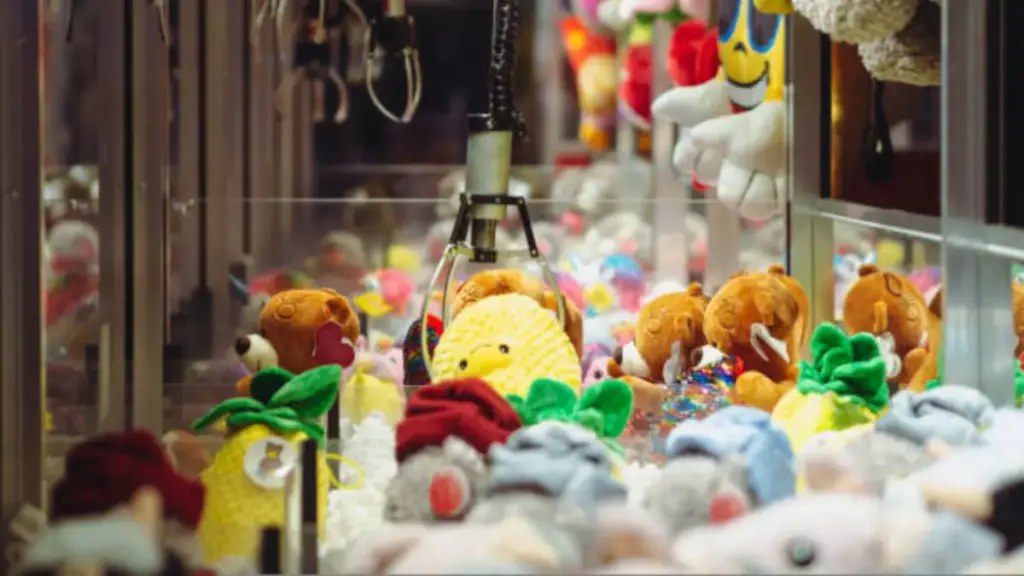
Warum Sie Lizenzanforderungen für Klauenmaschinen benötigen
Betrieb eines Klauenmaschinengeschäfts, ob für Arcade-Einstellungen, Einkaufszentren, oder sogar Partys und Veranstaltungen, ist nicht so einfach, wie eine Maschine an einem Ort aufzustellen und auf das Beste zu hoffen. Regierungen verlangen, dass diese Maschinen bestimmte Standards erfüllen, um die Sicherheit zu gewährleisten, Fairness, und um mögliche Risiken für die Öffentlichkeit zu vermeiden.
Zusätzlich zu den Sicherheitsstandards, Lizenzen regeln auch glücksspielbezogene Aktivitäten. Einige Greifautomaten können als eine Form des Glücksspiels angesehen werden, wenn sie einen finanziellen Einsatz mit ungewissen Gewinnchancen erfordern. Also, Das Verständnis, ob Ihre Maschinen eine Lizenz benötigen, ist nicht nur eine Frage der gesetzlichen Anforderungen – es ist ein entscheidender Schritt zur Wahrung eines guten Rufs, gesetzestreues Geschäft.
Lizenzanforderungen für den Betrieb von Klauenmaschinen in den USA.
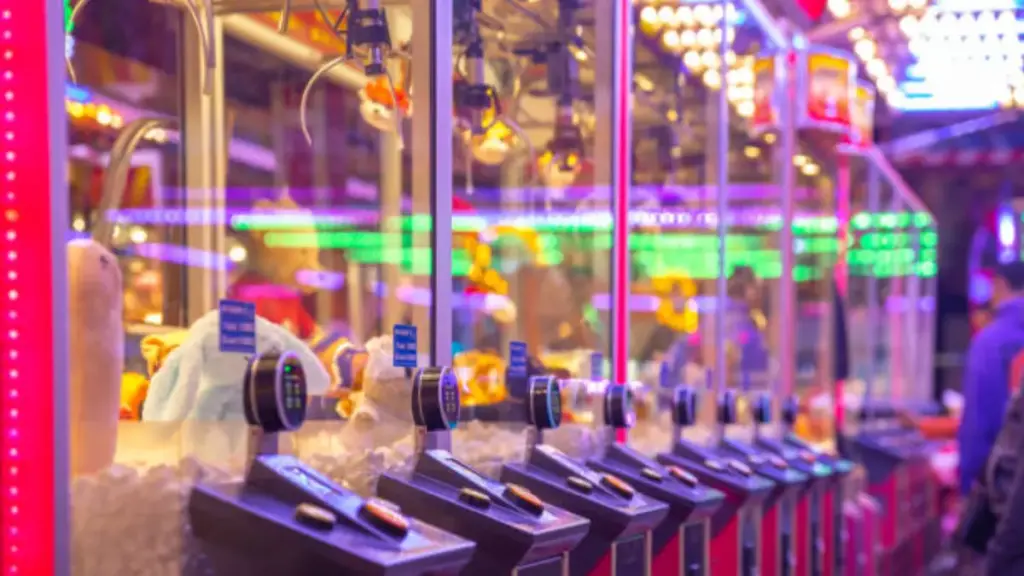
Betrieb einer Klauenmaschine in den USA. Dazu gehört die Einhaltung sowohl bundesstaatlicher als auch lokaler Regierungsvorschriften. Dabei legt die Bundesregierung übergreifende Regeln fest, Die Vorschriften auf Landes- und sogar Stadtebene stellen häufig spezifischere Anforderungen. Zum Beispiel, Die UL-Zertifizierung ist in den USA wichtig zur Sicherstellung der Einhaltung von Sicherheitsstandards. Nachfolgend finden Sie die wichtigsten Überlegungen für alle, die Klauenmaschinen in den USA bedienen möchten.
Welche Staaten erfordern eine Lizenz??
Im UNS., Zulassungsvoraussetzungen für Klauenmaschinen variieren stark je nach Bundesstaat und lokaler Gerichtsbarkeit. Nachfolgend finden Sie eine Übersicht über die wichtigsten Staaten und ihre spezifischen Vorschriften:
- Kalifornien
Kalifornien behandelt Klauenmaschinen mit besonderer Sorgfalt. Gemäß Abschnitt 330b des kalifornischen Strafgesetzbuchs, Klauenautomaten können als Glücksspielgeräte eingestuft werden, unterliegen strengen Vorschriften. Betreiber müssen eine Glücksspiellizenz erwerben, was bis zu kosten kann $300 pro Maschine, zusammen mit obligatorischen jährlichen Sicherheitsinspektionen. Verstöße gegen diese Vorschriften können hohe Bußgelder zur Folge haben.
- New York
Im Staat New York, Für den Betrieb von Klauenmaschinen ist eine Gewerbeerlaubnis erforderlich. New York City hat zusätzliche, detailliertere Regeln, einschließlich der Einholung einer Wohnsitzbescheinigung, umfangreiche Haftpflichtversicherung (bis zu $2.5 Million Anleihe), und das Bestehen von Elektro- und Gebäudeinspektionen. Die städtischen Vorschriften schränken auch die Auszahlung von Geldpreisen ein, klare Spielregeln vorschreiben, und zeitliche Beschränkungen für Minderjährige vorsehen.
- Florida
Florida benötigt staatliche Lizenzen für Unterhaltungsgeräte wie Klauenmaschinen, zusammen mit regelmäßigen Inspektionen. Betreiber müssen zudem eine Haftpflichtversicherung in Höhe von mind $1 Million. Der Staat verhängt strenge Strafen für unfaire Konstellationen, mit Bußgeldern bis zu $10,000 wegen Nichteinhaltung.
- Texas
In Texas, Für Klauenmaschinen ist keine landesspezifische Lizenz erforderlich, Die Betreiber müssen sich jedoch an die örtlichen Vorschriften halten. Für private Veranstaltungen mit mehr als $500, Möglicherweise ist eine vorübergehende Lizenz erforderlich.
- Michigan
In Michigan, Klauenmaschinen müssen sich jährlichen staatlichen Inspektionen unterziehen, um Faktoren wie Klauenstärke und Spieldauer zu überprüfen. Die Inspektionsgebühren liegen typischerweise zwischen $200 Zu $500 pro Maschine.
Jeder Staat hat seine eigenen Regeln, und lokale Gesetze können einen großen Unterschied machen. Informieren Sie sich unbedingt über die Vorschriften in Ihrem Bundesstaat und Ihrer Stadt, bevor Sie fortfahren.
Bundes vs. Vorschriften der Kommunalverwaltung
Auf Bundesebene, Es gibt kein einheitliches nationales Gesetz, das Klauenmaschinen regelt. Jedoch, die USA. Federal Trade Commission (Ftc) regelt “preisgekrönte Geräte,” Dazu gehören Klauenmaschinen. Diese Vorschriften verlangen, dass Maschinen nicht täuschen dürfen und dass Spieler aufgrund ihrer Gewinnchancen faire Gewinnchancen haben Geschick oder Glück.
Lokale Regierungen, auf der anderen Seite, sind die Hauptbehörden für die Erteilung von Geschäftslizenzen und Spielgenehmigungen für den Betrieb von Greifautomaten. Wenn Sie planen, einen Automaten in einem Einkaufszentrum oder einer Spielhalle aufzustellen, Die örtlichen Behörden werden wahrscheinlich verlangen, dass die Maschine auf Sicherheit und Fairness überprüft wird. Bevor Sie eine Maschine an einem neuen Standort installieren, ist es wichtig, die örtlichen Behörden zu konsultieren.
Erforderliche Schritte und Dokumentation zur Beantragung einer Lizenz
Um eine Lizenz zu beantragen, Normalerweise müssen Sie die folgende Dokumentation bereitstellen:
- Gewerbeanmeldung: Nachweis Ihrer Geschäftseinheit, ob es sich um eine LLC handelt, Gesellschaft, oder Einzelunternehmen.
- Maschinendetails: Spezifikationen der Klauenmaschine, einschließlich seiner Marke, Modell, und Auszahlungsmechanismus.
- Standortdetails: Informationen über den Standort der Maschine und die Art des Geschäfts (Arkade, Einkaufszentrum, usw.).
- Hintergrundüberprüfung: Einige Staaten verlangen möglicherweise eine kriminalpolizeiliche Überprüfung, um sicherzustellen, dass der Betreiber vertrauenswürdig ist.
Lizenz- und Compliance-Anforderungen für Klauenmaschinen in Europa
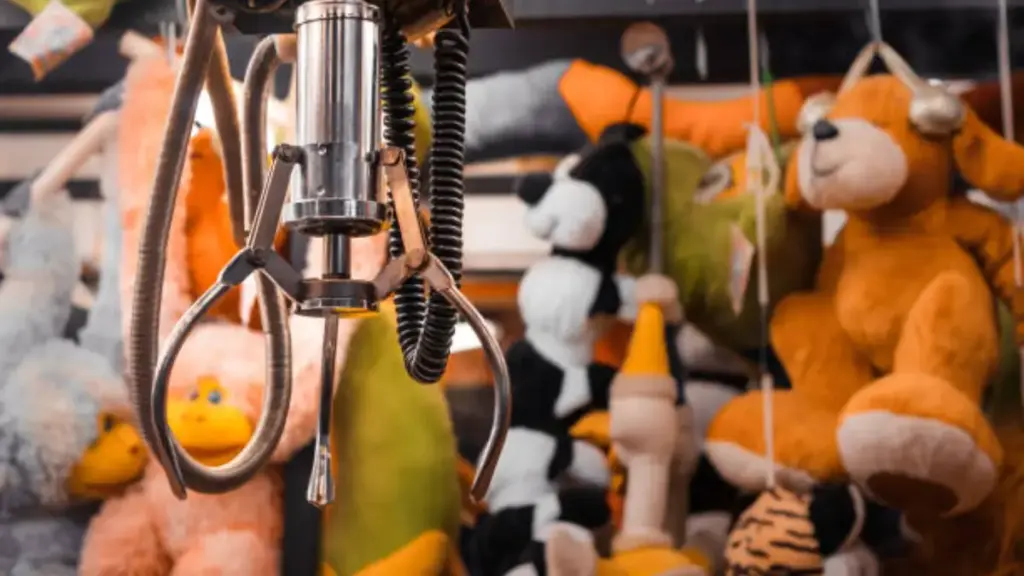
Wie in den USA., Auch bei der Zulassung und dem Betrieb von Klauenmaschinen gelten in Europa strenge Regeln. Jedoch, Der Regulierungsrahmen ist in den europäischen Ländern nicht einheitlich. Die Vorschriften unterscheiden sich nicht nur zwischen den Ländern, sondern manchmal sogar zwischen den Regionen desselben Landes. Hier finden Sie eine Aufschlüsselung der allgemeinen Compliance-Anforderungen für Klauenmaschinenbediener in Europa.
Gemeinsame Anforderungen in der gesamten EU
Im Allgemeinen, In den meisten europäischen Ländern müssen Klauenmaschinen bestimmte Sicherheits- und Fairnessstandards erfüllen. Die Maschinenrichtlinie der Europäischen Union (2006/42/EC) stellt sicher, dass Maschinen für die Öffentlichkeit sicher sein müssen. Diese Richtlinie legt die Mindestsicherheitsstandards fest, die alle innerhalb der EU verkauften Maschinen erfüllen müssen. Diese Normen decken die elektrische Sicherheit ab, mechanische Sicherheit, und Produktkennzeichnung, unter anderem.
Zusätzlich, Klauenautomaten müssen den europäischen Glücksspielvorschriften entsprechen, die verhindern sollen, dass die Automaten wie Glücksspielgeräte funktionieren. Automaten, die ausschließlich auf dem Zufall beruhen, um Gewinner zu ermitteln, können als Spielautomaten eingestuft werden und zusätzlichen Lizenzanforderungen unterliegen.
Länderspezifische Vorschriften
In Europa, Die Lizenz- und Regulierungsanforderungen für Klauenmaschinen variieren je nach Land, wobei jedes seine eigenen Regeln und Sicherheitsstandards hat. Hier sind einige wichtige Beispiele:
- Vereinigtes Königreich
In Großbritannien, Klauenautomaten fallen in die Zuständigkeit der Glücksspielkommission. Die Maschinen müssen den Anforderungen entsprechen Glücksspielgesetz 1968 und nachfolgende Gesetzgebung, Sicherstellen, dass sie kompetenzbasiert sind und nicht als Glücksspielgeräte eingestuft werden. Die Betreiber müssen für Fairplay und Transparenz sorgen, Die Preise sind ausschließlich auf Waren beschränkt (Kein Bargeld oder Gutscheine). Maschinen erfordern außerdem regelmäßige Inspektionen, um sicherzustellen, dass sie den von der britischen Gesundheits- und Sicherheitsbehörde festgelegten Sicherheitsstandards entsprechen.
- Deutschland
In Deutschland, Klauenautomaten unterliegen der Glücksspielverordnung (Spielverordnung). Betreiber müssen sich bei den örtlichen Behörden anmelden und sicherstellen, dass Maschinen nicht zufällig funktionieren. Zusätzlich, Es gelten Gewinnlimits, mit Preisen im Wert von maximal 5 € pro Spiel.
- Frankreich
In Frankreich, Klauenmaschinen müssen dem Code of Public Health entsprechen. Betreiber müssen sicherstellen, dass die Automaten jährlich auf Sicherheit und Einhaltung der Glücksspielgesetze überprüft werden. Außerdem, Für jedes Spielgerät, das Gewinne über 100 € anbietet, ist eine spezielle Glücksspiellizenz erforderlich.
- Italien
In Italien, Klauenmaschinen unterliegen der AAMS (Autonome Verwaltung staatlicher Monopole). Maschinen müssen bei AAMS registriert sein, jährlichen Inspektionen unterziehen, und halten Sie sich an die Fairness-Regeln. Zusätzlich, Italienisches Recht schreibt vor, dass der Preiswert 5 € pro Spiel nicht überschreiten darf.
Die Gesetze variieren je nach Land, und lokale Vorschriften erhöhen die Komplexität. Überprüfen Sie immer die spezifischen Anforderungen in Ihrer Region, bevor Sie Klauenmaschinen in Betrieb nehmen.
Lizenzierungsprozess in Europa
Klauenmaschinen in Europa legal betreiben, Sie müssen diese allgemeinen Schritte befolgen:
- Beantragen Sie eine Geschäftslizenz: Je nach Land oder Region, Dies kann die Registrierung bei der örtlichen Handelskammer oder Gewerbebehörde erfordern.
- Besorgen Sie sich eine Glücksspiellizenz (gegebenenfalls): Wenn Ihr Gerät als Spielgerät gilt, Sie müssen bei der zuständigen Behörde eine Glücksspiellizenz beantragen.
- Erfüllen Sie Sicherheits- und Compliance-Standards: Ihre Klauenmaschine muss Sicherheitsprüfungen bestehen, um sicherzustellen, dass sie den EU-Standards und allen örtlichen Vorschriften entspricht.
- Notwendige Dokumentation anzeigen: In einigen Ländern ist es erforderlich, dass bestimmte Zertifizierungen oder Genehmigungen sichtbar auf der Maschine selbst angebracht werden.
UNS. vs. Europäische Zertifizierung für Klauenmaschinen: Eine Compliance-Checkliste
Um sicherzustellen, dass Ihre Klauenmaschinen konform sind, Hier finden Sie einen kurzen Vergleich der Zertifizierungs- und Lizenzanforderungen in den USA. und Europa:
| Zertifizierung | In den USA erforderlich. | In Europa erforderlich (EU) | Zweck | Schlüsselunterschiede |
| UL (Underwriters Laboratories) | ✅ | ❌ | Gewährleistet Elektro- und Brandschutz | UNS.: Erforderlich für elektrische Sicherheitsprüfungen. Europa: Nicht erforderlich; Eine CE-Zertifizierung ist erforderlich. |
| CE (Europäische Konformität) | ❌ | ✅ | Stellt sicher, dass das Produkt den EU-Gesundheitsvorschriften entspricht, Sicherheit, und Umweltanforderungen | UNS.: Nicht anwendbar. Europa: Erforderlich für den Markteintritt. |
| Rohs (Beschränkung gefährlicher Stoffe) | ❌ | ✅ | Beschränkt die Verwendung gefährlicher Materialien in elektrischen Geräten | UNS: Nach Bundesgesetz nicht erforderlich. Europa: Obligatorisch für elektrische und elektronische Produkte. |
| FCC (Federal Communications Commission) | ✅ | ❌ | Reguliert elektromagnetische Störungen | UNS: Erforderlich für Geräte, die Funkwellen aussenden. Europa: CE kümmert sich um die EMF-Regulierung. |
| WEEE (Elektro- und Elektronik-Altgeräte) | ❌ | ✅ | Sorgt für die ordnungsgemäße Entsorgung von Elektroschrott | UNS: Nicht erforderlich. Europa: Zur Einhaltung der Recyclinggesetze erforderlich. |
Legalität von Klauenmaschinen: So vermeiden Sie rechtliche Risiken
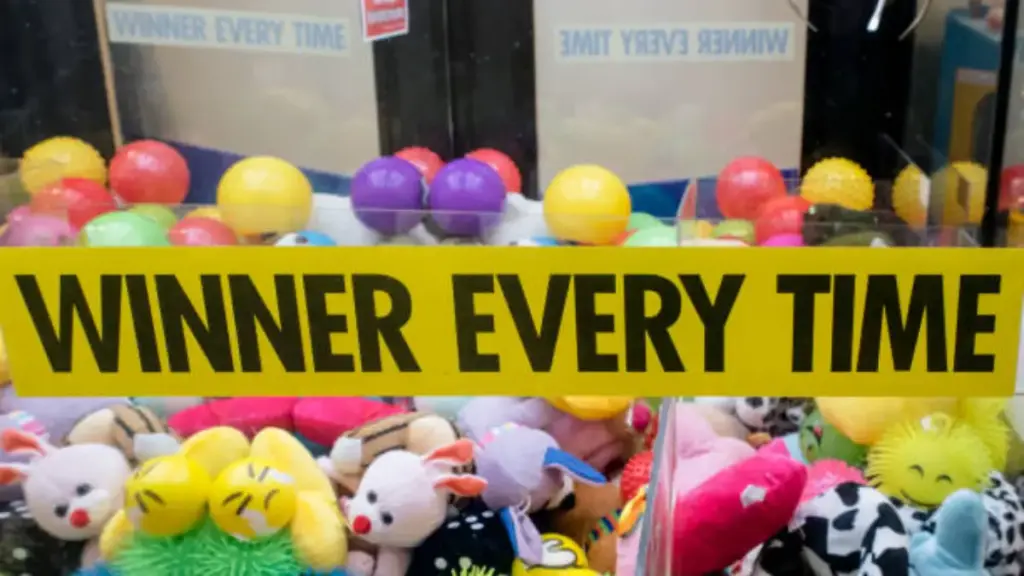
Eine häufige Frage ist, “Sind Klauenautomaten Glücksspiel?” In einigen Regionen ist es erforderlich, dass Maschinen eine bestimmte Funktion bieten Auszahlungsprozentsatz– wenn es zu niedrig oder manipuliert ist, Der Automat kann als Glücksspielgerät betrachtet werden. Betreiber sollten sicherstellen, dass ihre Maschinen diese Regeln einhalten, und erwägen, klare Auszahlungsstrukturen anzubieten, die kompetenzbasierte Elemente hervorheben. Zum Beispiel, Einige Orte legen Regeln fest wie, „10 Münzen für einen garantierten Gewinn,„um Fairness zu klären und Vertrauen bei den Spielern aufzubauen.
Abgesehen von Glücksspielproblemen, sonstige rechtliche Risiken und Fehler, die Sie vermeiden sollten, Das Fehlen klarer Spielregeln und Preisinformationen kann ebenfalls zu Problemen führen. Viele Betriebe veröffentlichen inzwischen spezifische Richtlinien, B. das Anbieten einer bestimmten Anzahl von Versuchen pro Preis oder die klare Aussage, dass die Mitarbeiter helfen können, wenn ein Preis nicht erreichbar ist. Eine solche Transparenz kann Missverständnisse reduzieren und Spieler dazu ermutigen, sich ohne Angst vor versteckten Risiken zu engagieren.
Versicherungsanforderungen: Schützen Sie Ihr Klauenmaschinengeschäft
Betreiber von Klauenmaschinen müssen außerdem eine Versicherung abschließen, um sich gegen mögliche Risiken wie Diebstahl zu schützen, Schaden, oder Verletzung. Die Versicherungsanforderungen variieren, aber die meisten Unternehmen werden es brauchen:
- Allgemeine Haftpflichtversicherung: Deckt Unfälle oder Verletzungen im Zusammenhang mit Ihrer Maschine ab.
- Sachversicherung: Schützt vor Diebstahl oder Beschädigung Ihrer Maschinen.
- Betriebsunterbrechungsversicherung: Deckt Einkommensverluste ab, wenn Ihre Maschine außer Betrieb ist.
Bei der Auswahl eines Versicherungsplans, Berücksichtigen Sie die folgenden Faktoren:
- Standort: Ihr Versicherungsbedarf kann variieren, je nachdem, ob sich Ihre Maschinen in einem stark frequentierten Bereich oder an abgelegeneren Standorten befinden.
- Maschinenwert: High-End-Maschinen benötigen möglicherweise mehr Abdeckung.
- Risikofaktoren: Wenn sich Ihre Maschine an einem Standort mit hohem Risiko befindet (Z.B., eine Spielhalle), Möglicherweise benötigen Sie eine umfassendere Abdeckung.
Zukünftige Trends bei der Einhaltung und Regulierung von Klauenmaschinen
Während sich die Technologie weiterentwickelt, Dies gilt auch für die regulatorischen Rahmenbedingungen für Klauenmaschinen. Der Aufstieg intelligenter Klauenmaschinen, Integration mobiler Apps und digitaler Zahlungssysteme, könnte neue Regelungen zu Datenschutz- und Fairness-Audits nach sich ziehen.
Experten prognostizieren, dass künftige Regulierungen zunehmend darauf abzielen werden, die Transparenz dieser Maschinen sicherzustellen, gerecht, und nicht ausbeuterisch, insbesondere da sie stärker in digitale Technologien und Spieler-Tracking-Systeme integriert werden. Als solche, Betreiber sollten in den kommenden Jahren mit sich weiterentwickelnden Regeln rund um Spielmechanik und Verbraucherschutz rechnen.
Compliance ist die Grundlage für den erfolgreichen Betrieb von Klauenmaschinen
Bei der Einhaltung gesetzlicher Vorschriften geht es nicht nur um die Vermeidung von Bußgeldern, sondern auch um den Schutz von Spielern und Betreibern. Ob Sie in den USA sind, Europa, oder anderswo, Die Einhaltung der örtlichen Gesetze ist der erste Schritt zum erfolgreichen Betrieb eines Klauenmaschinenunternehmens.
Wählen hochwertige Maschinen die den örtlichen Sicherheits- und Auszahlungsstandards entsprechen, gewährleistet eine zuverlässige, faires Spielerlebnis. Tongru Maschinen sind so konzipiert, dass sie diese Anforderungen übertreffen, Bereitstellung langfristiger Werte und Vertrauen. Kontaktieren Sie uns noch heute, um Ihr Unternehmen auf die nächste Stufe zu bringen.












